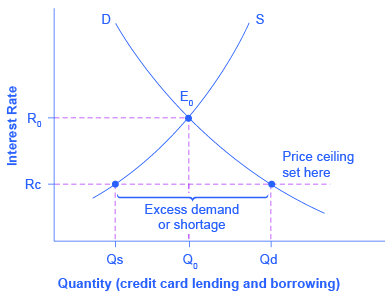Price Controls Price Ceiling Or Price Floor Are Quizlet

Price ceilings and price floors.
Price controls price ceiling or price floor are quizlet. Price controls from the concise encyclopedia of economics. Which of the following price controls would cause a shortage of 20 units of the good. It s generally applied to consumer staples. A price ceiling is a maximum amount mandated by law that a seller can charge for a product or service.
How price controls reallocate surplus. When the ceiling is set below the market price there will be excess demand or a supply shortage. It is legal minimum price set by the government on particular goods and services in order to prevent producers from being paid very less price. A price ceiling of 10 c.
They are usually implemented as a means of direct economic intervention to manage the affordability. Price controls refer to the figure. Price controls are government mandated legal minimum or maximum prices set for specified goods. Producers won t produce as much at the lower price while consumers will demand more because the goods are cheaper.
When the ceiling is set below the market price there will be excess demand or a supply shortage. Producers won t produce as much at the lower price while consumers will demand more because the goods are cheaper. The effect of government interventions on surplus. A price ceiling is the legal maximum price for a good or service while a price floor is the legal minimum price.
A price floor of 6 d. Governments have been trying to set maximum or minimum prices since ancient times. Like price ceiling price floor is also a measure of price control imposed by the government. If the price is not permitted to rise the quantity supplied remains at 15 000.
This is the currently selected item. Price and quantity controls. The old testament prohibited interest on loans medieval governments fixed the maximum price of bread and in recent years governments in the united states have fixed the price of gasoline the rent on apartments in. Taxation and dead weight loss.
The original intersection of demand and supply occurs at e 0 if demand shifts from d 0 to d 1 the new equilibrium would be at e 1 unless a price ceiling prevents the price from rising. Example breaking down tax incidence. A price ceiling of 6 b. Price ceilings only become a problem when they are set below the market equilibrium price.
But this is a control or limit on how low a price can be charged for any commodity.































